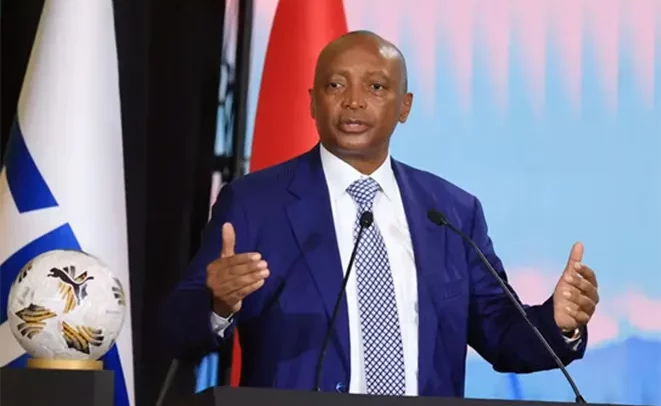Dr. Patrice Motsepe
The Confederation of African Football (CAF) has introduced a dedicated Infrastructure Department within its Competitions and Events Division, as part of President Dr. Patrice Motsepe’s vision to ensure that all Member Associations can host their home matches within their own countries.
According to CAF, a Senior Infrastructure Manager has been appointed to provide technical support to Member Associations on all matters related to football infrastructure.
The governing body is urging associations to collaborate with the department early in any stadium project, whether it involves the construction of a new facility, renovation of an existing one, or the approval process for match venues. Early engagement, CAF noted, will guarantee compliance with CAF and FIFA standards from the outset.
In line with its updated protocols, CAF outlined the process for approving stadiums that are either newly built, renovated, or not yet authorised for CAF or FIFA competitions.
The procedure begins with a pre-inspection by the association’s Club Licensing Manager, who must submit a detailed report, including photos and videos, via the CAF CLOP platform. CAF then reviews this report to decide whether a full on-site inspection is necessary.
If an inspection is required, CAF will deploy a team of independent experts, including specialists in sports infrastructure, safety and security, and natural or artificial turf.
All related costs—covering transport, accommodation, and consultant fees—will be borne by the Member Association requesting approval. After the inspection team submits its report, or based on the pre-inspection findings when an on-site visit is not needed, CAF will issue a final decision on the stadium’s eligibility. Any rejection will include clear reasons and recommendations for improvement.
CAF also warned that late applications—filed less than two months before a scheduled CAF or FIFA match—may not be considered.
This move signals CAF’s renewed focus on improving football infrastructure across the continent, a critical step toward ensuring that African competitions meet global standards and reducing the need for Member Associations to play home matches abroad.


